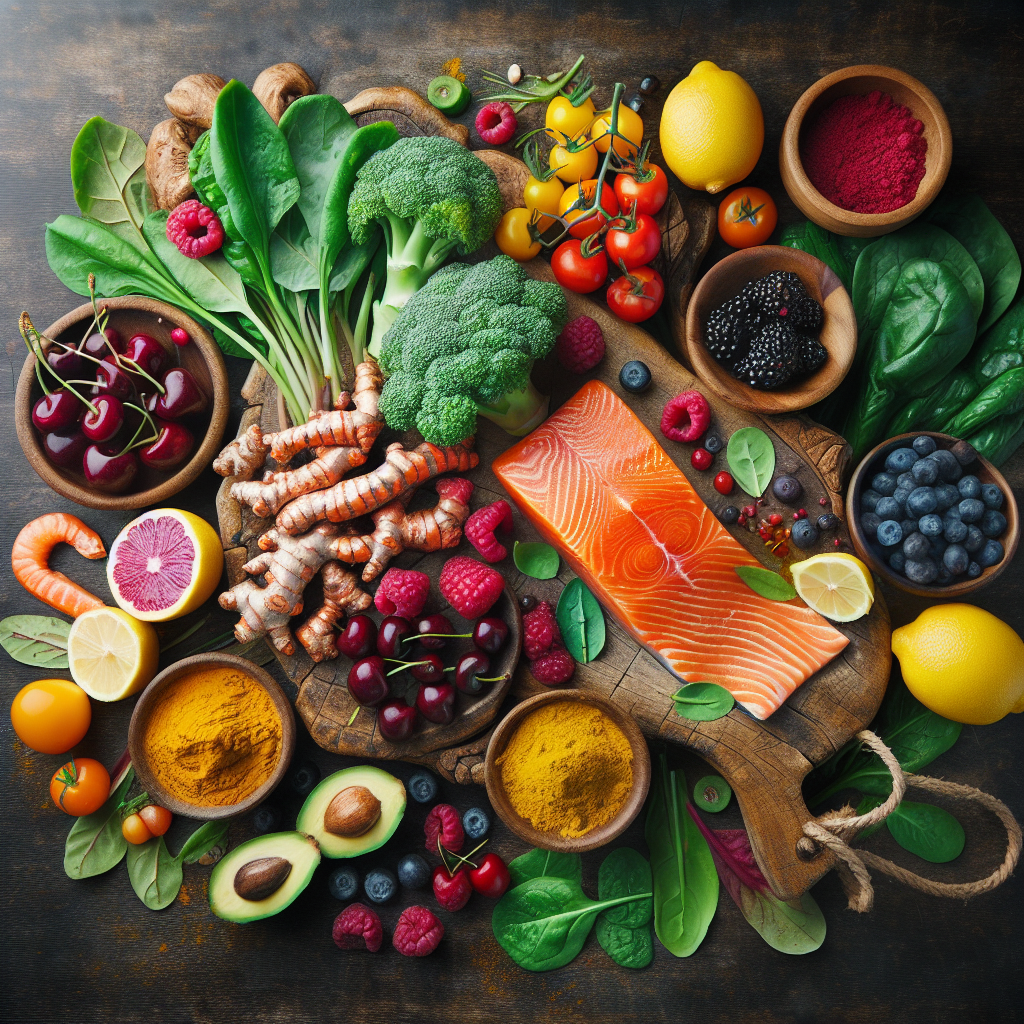Here’s the complete article as requested:
For athletes, inflammation is a double-edged sword. While acute inflammation is a natural response that helps repair muscles after intense training, chronic inflammation can hinder performance and delay recovery. Fortunately, nature provides powerful organic foods that can help combat inflammation while supporting overall athletic performance. Incorporating these nutrient-dense options into your diet can make a significant difference in recovery times, joint health, and energy levels.
The Science Behind Inflammation and Athletic Performance
Inflammation occurs when the body’s immune system responds to stress, injury, or infection. For athletes, intense physical activity creates micro-tears in muscle fibers, triggering localized inflammation as part of the repair process. While this is normal, excessive or prolonged inflammation can lead to:
- Delayed muscle recovery
- Increased risk of injury
- Joint pain and stiffness
- Reduced performance capacity
Research shows that certain organic foods contain potent anti-inflammatory compounds that can help modulate this response. These foods work by reducing oxidative stress and inhibiting inflammatory pathways in the body.
Top Organic Anti-Inflammatory Foods for Athletes
1. Turmeric: The Golden Anti-Inflammatory
Turmeric, particularly its active compound curcumin, is one of nature’s most powerful anti-inflammatory agents. Studies show it can reduce muscle damage and soreness post-exercise while improving recovery times. The bright yellow spice works by blocking NF-kB, a molecule that triggers inflammation at the cellular level.
How to use it: Combine with black pepper to enhance absorption. Try adding to smoothies, soups, or golden milk.
2. Tart Cherries: Nature’s Recovery Aid
Tart cherries contain anthocyanins that have been shown to reduce muscle pain and inflammation after strenuous exercise. Research on marathon runners found that those who drank tart cherry juice experienced less muscle damage and faster strength recovery.
How to use it: Drink tart cherry juice after workouts or add frozen tart cherries to post-training smoothies.
3. Fatty Fish: Omega-3 Powerhouses
Wild-caught salmon, sardines, and mackerel are rich in omega-3 fatty acids (EPA and DHA), which are potent anti-inflammatory nutrients. These healthy fats help reduce exercise-induced inflammation while supporting joint health and cardiovascular function.
How to use it: Aim for 2-3 servings per week. Grilled, baked, or canned (in water) are excellent options.
4. Leafy Greens: Nutrient-Dense Inflammation Fighters
Dark leafy greens like kale, spinach, and Swiss chard are packed with antioxidants (including vitamin E, C, and flavonoids) that help neutralize free radicals produced during intense exercise.
How to use it: Add to smoothies, salads, or sauté as a side dish with olive oil.
5. Ginger: The Warming Anti-Inflammatory
Ginger contains gingerol, a bioactive compound with powerful anti-inflammatory and analgesic properties. Studies suggest it may help reduce muscle pain after exercise by up to 25%.
How to use it: Grate fresh ginger into teas, stir-fries, or make ginger shots with lemon and honey.
6. Berries: Antioxidant Powerhouses
Blueberries, blackberries, and raspberries are rich in polyphenols that help reduce oxidative stress and inflammation. Their high antioxidant content makes them particularly beneficial for athletes undergoing intense training.
How to use it: Enjoy fresh or frozen in smoothies, yogurt, or as a snack with nuts.
7. Extra Virgin Olive Oil: The Mediterranean Secret
High-quality extra virgin olive oil contains oleocanthal, a compound with similar anti-inflammatory effects to ibuprofen. It’s also rich in monounsaturated fats that support cardiovascular health.
How to use it: Drizzle over vegetables, use in salad dressings, or as a finishing oil for cooked dishes.
Creating an Anti-Inflammatory Meal Plan for Athletes
Pre-Workout Anti-Inflammatory Meal
- Oatmeal with blueberries and chia seeds
- Green tea with lemon
- Handful of walnuts
Post-Workout Recovery Meal
- Grilled wild salmon with roasted sweet potatoes
- Sautéed spinach with garlic and olive oil
- Tart cherry juice
Anti-Inflammatory Snack Options
- Greek yogurt with berries and flaxseeds
- Carrot sticks with hummus
- Handful of raw almonds
Additional Lifestyle Tips for Reducing Inflammation
While diet plays a crucial role, other lifestyle factors can help manage inflammation:
- Hydration: Proper fluid intake supports all bodily functions and helps flush out inflammatory byproducts.
- Sleep: Quality sleep is essential for recovery and inflammation regulation.
- Stress Management: Chronic stress increases cortisol, which can exacerbate inflammation.
- Active Recovery: Light movement on rest days promotes circulation and recovery.
By incorporating these organic anti-inflammatory foods into a balanced diet and maintaining healthy lifestyle habits, athletes can optimize their recovery, reduce injury risk, and enhance overall performance.
